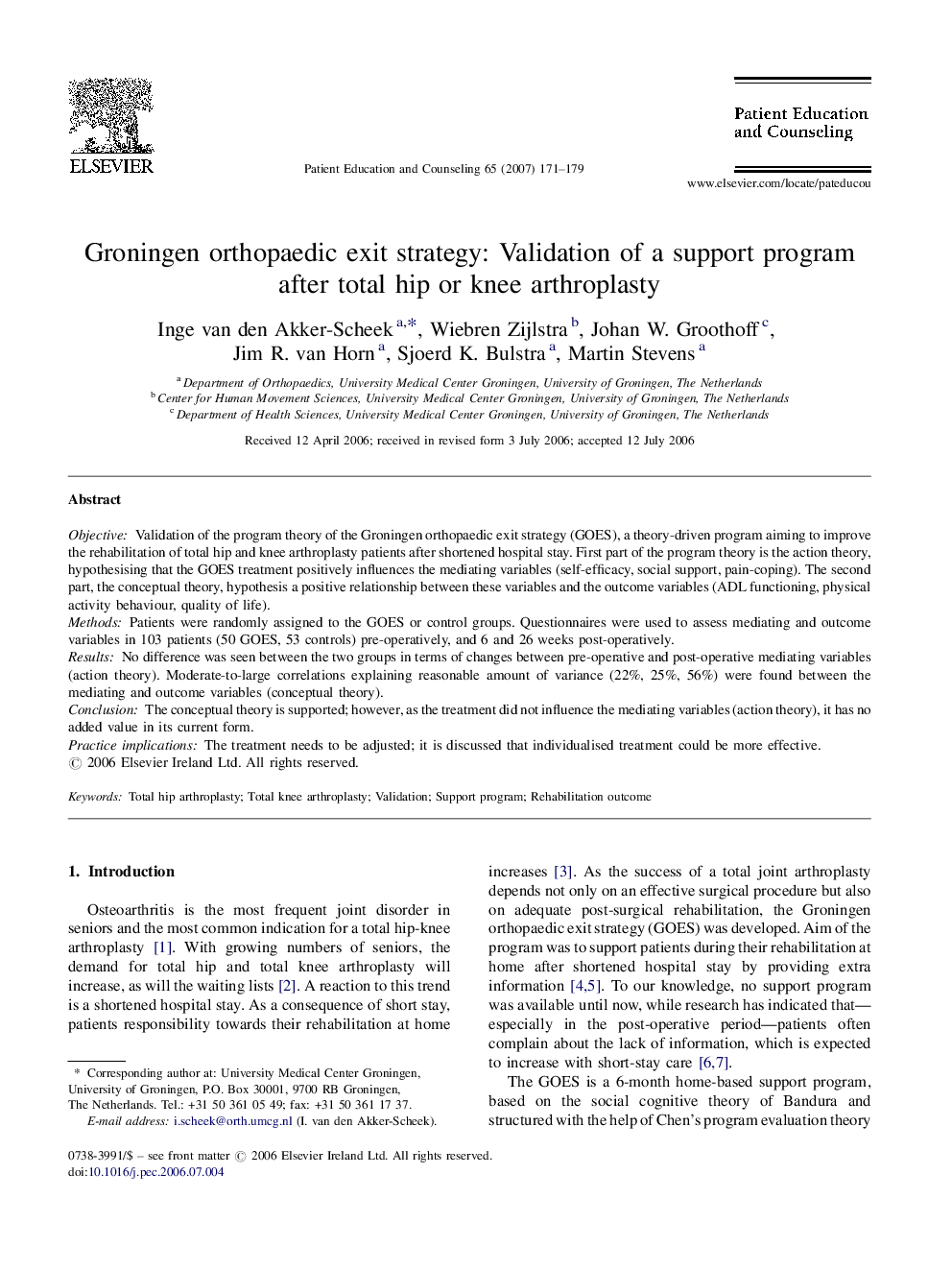| Article ID | Journal | Published Year | Pages | File Type |
|---|---|---|---|---|
| 3814448 | Patient Education and Counseling | 2007 | 9 Pages |
ObjectiveValidation of the program theory of the Groningen orthopaedic exit strategy (GOES), a theory-driven program aiming to improve the rehabilitation of total hip and knee arthroplasty patients after shortened hospital stay. First part of the program theory is the action theory, hypothesising that the GOES treatment positively influences the mediating variables (self-efficacy, social support, pain-coping). The second part, the conceptual theory, hypothesis a positive relationship between these variables and the outcome variables (ADL functioning, physical activity behaviour, quality of life).MethodsPatients were randomly assigned to the GOES or control groups. Questionnaires were used to assess mediating and outcome variables in 103 patients (50 GOES, 53 controls) pre-operatively, and 6 and 26 weeks post-operatively.ResultsNo difference was seen between the two groups in terms of changes between pre-operative and post-operative mediating variables (action theory). Moderate-to-large correlations explaining reasonable amount of variance (22%, 25%, 56%) were found between the mediating and outcome variables (conceptual theory).ConclusionThe conceptual theory is supported; however, as the treatment did not influence the mediating variables (action theory), it has no added value in its current form.Practice implicationsThe treatment needs to be adjusted; it is discussed that individualised treatment could be more effective.
